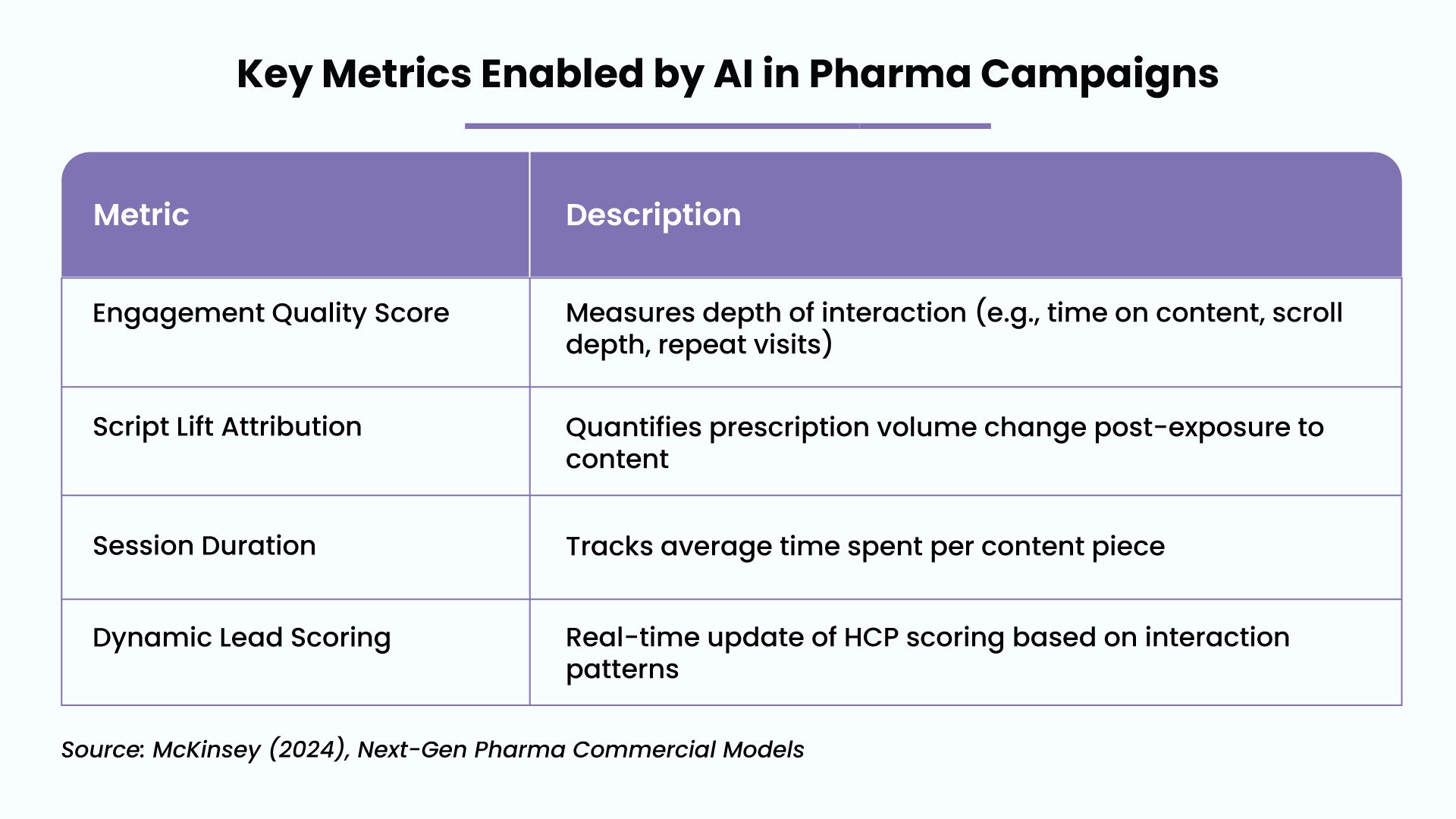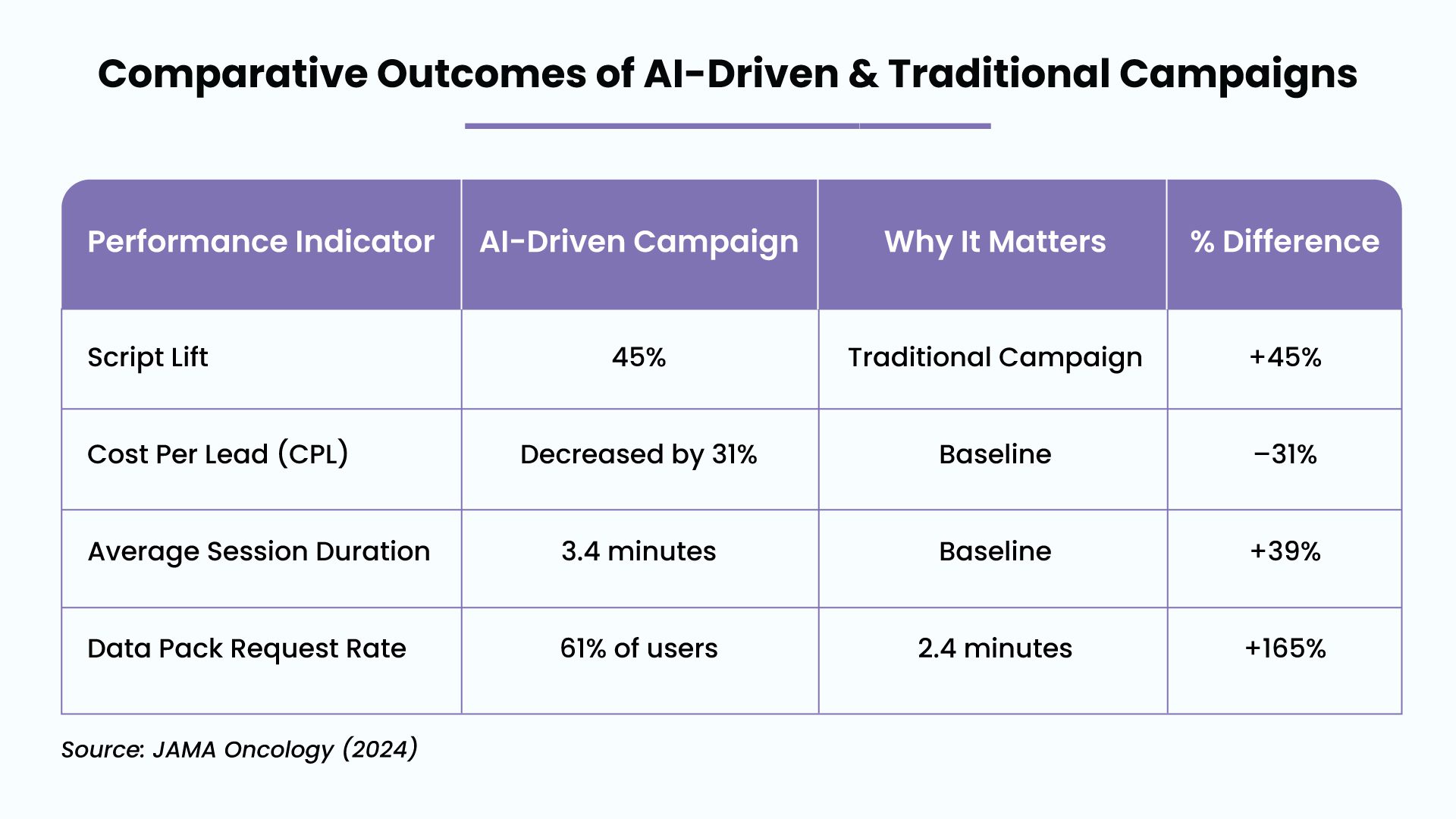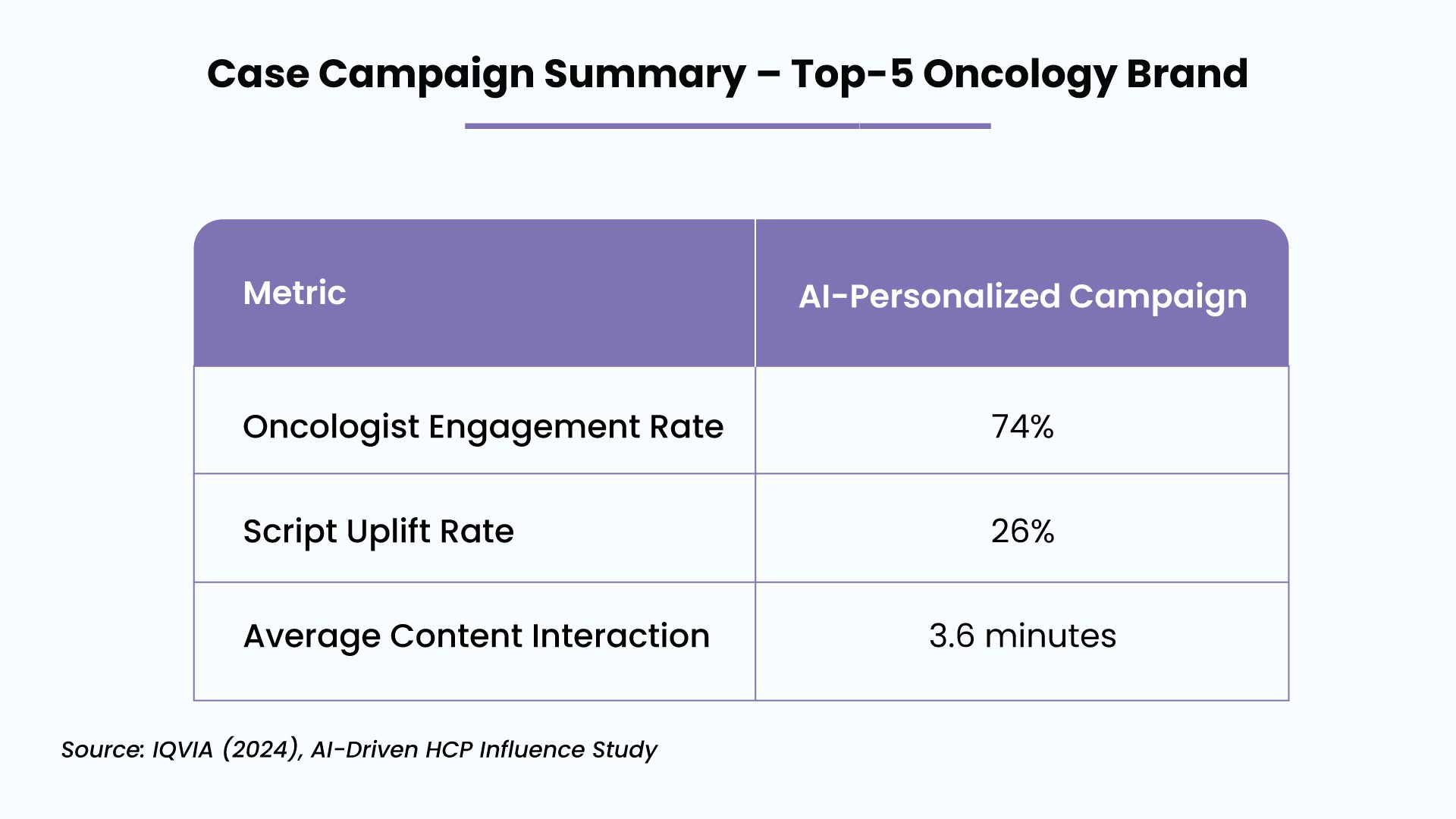Executive Summary
In an era where evidence-based practice is paramount, oncologists increasingly rely on real-world data (RWD) to guide clinical decision-making. AI in oncology case studies is transforming how this data is curated. Artificial Intelligence (AI) is revolutionising how this data is curated, personalised, and delivered, marking a significant evolution in pharmaceutical engagement strategies. AI-driven case study campaigns are emerging as a strategic asset for oncology marketers, providing a measurable uplift in engagement, prescribing intent, and return on investment (ROI).
1. Introduction: The Shift from Promotional to Evidence-Led Engagement
With the U.S. oncology market projected to exceed $200 billion by 2025 (Statista, 2024), pharmaceutical brands are under increasing pressure to deliver value-led content that supports physician decision-making. AI’s integration into RWD campaign strategies is not merely enhancing traditional digital tactics—it is redefining them.
Oncologists are no longer passive recipients of generalised marketing content. Alternatively, they demand actionable, relevant, and peer-aligned insights. This request has led to a transformation in case study execution: from static narratives to AI-personalised, interactive engagements grounded in real-world evidence.
2. Key Metrics Optimised Through AIy
AI enables a level of granularity in performance tracking that goes beyond traditional digital metrics. The following table outlines the evolved metrics now used to assess campaign efficacy:

According to McKinsey, AI-personalised case studies extend average attention spans by 2.8x compared to generic promotions.
3. Comparative Outcomes: AI-Driven vs. Traditional Case Studies
A comparative analysis published by JAMA Oncology (2024) demonstrated a substantial uplift in clinical engagement and ROI metrics from AI-enhanced case study campaigns.

These results underscore the strategic value of AI in increasing prescribing intent and optimising budget allocations.
4. Case Example: AI-Personalised Campaign with Hidoc
A leading oncology pharmaceutical company partnered with Hidoc to launch a nationwide AI-driven RWD campaign. The AI engine analysed electronic health records (EHRs), prescribing history, and digital behavioural patterns to tailor content to each oncologist’s clinical profile.
Key Results:
- 61% increase in oncologists requesting detailed case data
- 26% increase in new patient starts (verified via IQVIA Rx audits)
- 53% increase in session durations over previous campaigns

5. Market-Wide Trends: Oncologist Preferences for AI-Curated Content
As per Accenture’s HCP Digital Trust & Influence Report (2024), 68% of oncologists now trust RWD curated with AI analytics over traditional pharma-sponsored materials. This shows a clear shift towards data-driven insights. This shift highlights the growing preference for data-driven insights over conventional resources. This growing trust is driven by AI’s ability to deliver hyper-relevant, unbiased case studies that mirror actual patient scenarios.
Furthermore, interactive formats, such as AI-powered digital case libraries and adaptive learning modules, achieve 42% higher engagement rates compared to static PDFs or slide decks (IQVIA, 2023).
6. Strategic Implications for Pharma Marketers
To remain competitive in the oncology space, pharmaceutical companies must evolve from generic promotional content to evidence-first, AI-powered clinical engagement. Moreover, when deployed through platforms like Hidoc, which grants access to 20,000 U.S. oncologists and sees 13,000 actively engaging each month, the impact of these campaigns is significantly magnified.
Influence of AI on Key Campaign Metrics :
- Engagement Time: +53%
- Data Requests: +61%
- Script Uplift: +45%
- Lead Quality Score: +36%
7. Conclusion
AI-powered real-world data campaigns represent a paradigm shift in oncology marketing. By tailoring content to the clinical realities of practicing oncologists, pharmaceutical brands are achieving higher clinical impact, greater prescribing influence, and stronger ROI. The future of HCP engagement lies in combining AI, RWD, and intelligent platforms that support personalized, scalable interaction with high-value clinicians.
“The formula for success in oncology marketing is clear: AI + RWD + Active HCP Networks. Every element reinforces the next, creating a self-optimising engagement loop that drives measurable outcomes.”
— Salesforce (2024)
References
- McKinsey (2024). Next-Gen Pharma Commercial Models
- JAMA Oncology (2024). AI-Driven Real-World Evidence and Oncologist Influence
- IQVIA (2024). AI-Driven HCP Influence Study
- Accenture (2024). HCP Digital Trust & Influence Report
- Salesforce (2024). 2024 HCP Digital Engagement Trends
- Statista (2024). U.S. Oncology Market Forecast
- Journal of Medical Internet Research (2023). AI in Real-World Oncology Practice



